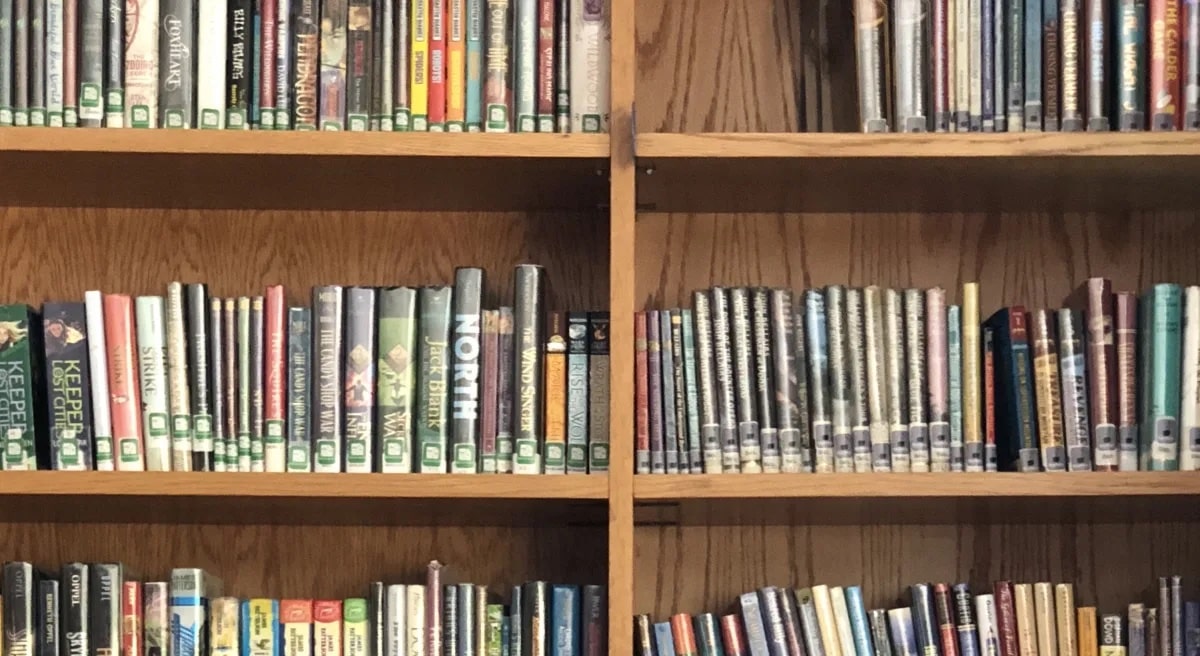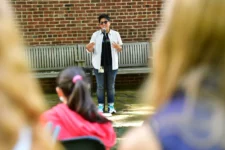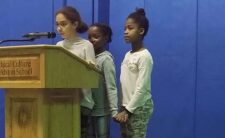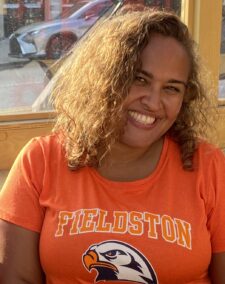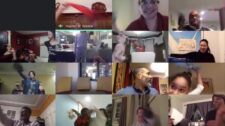Diversity, equity, and inclusion (DEI) work is a cornerstone of the Ethical Culture Fieldston School’s ethos, woven into the School’s history from the start. On a Tuesday night in October, over 60 families new to the School tuned in from their homes for a mandatory orientation into ECFS’s approach to DEI led by the DEI team. Here are just some of the takeaways from the night.
1. DEI is imbued into everything we do at ECFS.
At ECFS, DEI is not an add-on or auxiliary concept: “We do not separate academic excellence from ethical education, progressive education, and DEI work,” Director of Community and Inclusion Russell Marsh says. “They are all branches of the same tree.” From assemblies to curriculum design to affinity groups to our CARe (Conversations About Race, ethics, equity, empathy) program, DEI work is a throughline in all that we do.

2. DEI work changes as students move through our divisions.
DEI work in the lower grades looks much different than it does in the upper grades, because the education around these issues is always developmentally appropriate. “What does identity look like in 2nd Grade versus in 10th Grade?” Mica McGriggs, Fieldston Middle DEI Coordinator asks. The conversations naturally change with the students’ maturity levels, and adapt to their changing needs.
3. Progressive education is central to our history.
Integrated and co-educational from its founding in 1878, ECFS has maintained its commitment to progressive education for over a century. “What Felix Adler called ‘progressive education’ in 1878 is still great progressive education in 2021,” Marsh says. Educators at ECFS therefore prioritize experiential learning, localizing community, and student-centered work.
4. Student affinity groups are critical support systems.
Affinity groups are spaces for people to be in community with others who share an identifier — such as race, gender, religion, or sexual orientation. Affinity groups also can address intersecting identifiers, like the specific ways in which race and gender, for example, impact a person or group’s experience. While students spend an overwhelming majority of their time in mixed spaces, affinity groups are valuable to helping students gain an understanding of themselves and of those around them.
Starting with the CARe program in 3rd Grade at Fieldston Lower and 4th Grade at Ethical Culture, students meet five times a year with classmates and teachers with whom they share an affinity to develop racial literacy and support, focusing on the individual, systemic, and community. At the end of each session, the different groups come together for a cross talk.
As the students enter Fieldston Middle and Fieldston Upper, they have the opportunity to join multiple affinity groups — and new groups are added to fit the changing needs and identities of the community. Affinity groups are “not group therapy and not a club,” McGriggs says. Instead, they are a critical way for students to get to know themselves and each other, and find support in their community.
5. DEI work isn’t just for students — it’s for all of us.
“How do we make a welcoming and loving and inclusive environment that’s academically rigorous?” Shannon Matlovsky, Ethical Culture DEI Coordinator asks. A major piece is that every adult in the ECFS community engages in DEI work — including parent/guardian or faculty affinity groups, the All School Multicultural Committee, curriculum design, equity literacy training, professional development, faculty book clubs, in house trainings, and the Progressive Teaching Institute.
